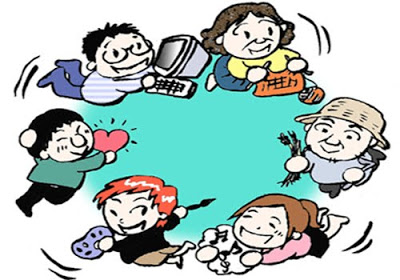Why can’t we be friends? by Lisa Nielsen

Tools and ideas to transform education. Sign up below.
You are now subscribed
Your newsletter sign-up was successful
The recent story of teachers who engaged in inappropriate behavior with students using Facebook has gained attention and outcries to ban teachers from “friending” students on Facebook. Innovative educators know this is confusing, rather than addressing, the issue. We can’t ban adults or children from using the places creeps go to prey on children. We need to ensure the places students frequent are safe which also means ensuring trusted adults are in these environments.
Rather than what the media might have you believe, this means we need to encourage, NOT discourage educators from “friending” students not just on Facebook, but on playgrounds, in classrooms, and in the community. This is not a requirement of educators, but many of us know that those teachers who make the most positive impact in the lives of their students are the ones who see them as more than just a number or letter grade and instead realized the entire social-emotional being and are there for their students as supportive role-models.
As we look at the media’s confusion with promoting fear of the tool rather than the person, I think we need to take a look at the word “friend” and its meaning. Recently, many unquestioningly take the stand that adults should not be “friends” with students. Really? Is being a friend to a student really such a taboo action? Are we that mistrustful of all adults that this needs to be the default choice of how student/teacher relationships should be defined?
Encarta defines the word friend as follows:
1. somebody emotionally close: somebody who trusts and is fond of another.
2. acquaintance: somebody who thinks well of or is on good terms with somebody else.
3. ally: an ally, or somebody who is not an enemy.
4. advocate of cause: a defender or supporter of a cause, group, or principle.
More recently “friend” or “friending” has taken on another definition.
The building and reflecting of social networks or social relations among people, e.g., who share interests and/or activities. en.wikipedia.org/wiki/Friending
Friends, in part, define exactly the type of caring, concerned individual we want in our children’s lives. A friend is not someone who crosses a line or makes another feel uncomfortable. These are the people we teach our students to block from their online and physical lives and there in lies the solution.
Cross posted at The Innovative Educator, International Edublogger, International EduTwitter, and Google Certified Teacher, Lisa Nielsen is best known as creator of The Innovative Educator blog and Transforming Education for the 21st Century learning network. An outspoken and passionate advocate of innovative education Ms. Nielsen is covered by local and national media for her views on "Thinking Outside the Ban" and determining ways to harness the power of technology for instruction and providing a voice to educators and students. Based in New York City, Ms. Nielsen has worked for more than a decade in various capacities helping schools and districts to educate in innovative ways that will prepare students for 21st century success.
Tools and ideas to transform education. Sign up below.
Disclaimer: The information shared here is strictly that of the author and does not reflect the opinions or endorsement of her employer.
